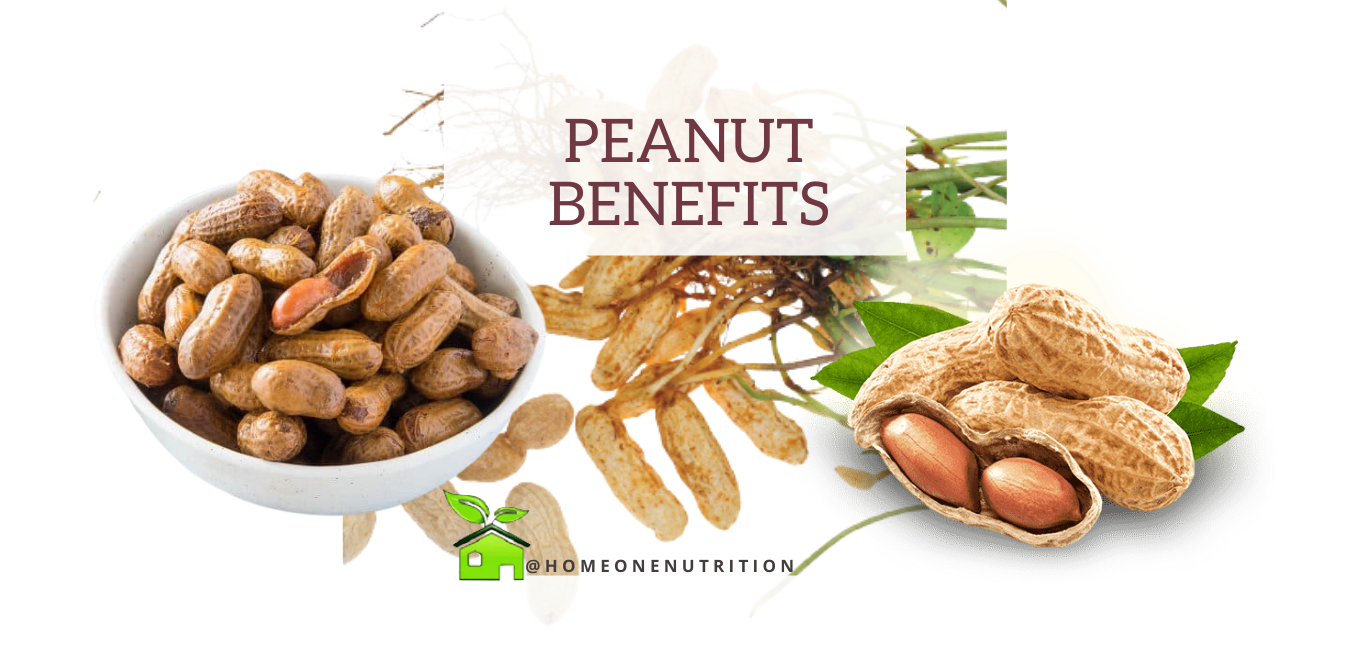Peanuts (Arachis hypogaea) are a legume that originated in South America. Nuts are one of the most popular snack foods. Surprisingly, peanuts are not actually in the nut family. They are classified as legumes along with foods like green peas, soybeans, and lentils. Other peanut products include peanut oil, flour, and protein. These goods are used in a variety of foods, such as desserts, cakes, confectionery, snacks, and sauces.
HEALTH BENEFITS OF PEANUTS
- Prevents Gallstone
- Diabetic friendly nuts
- Improves Vision
- Healthy Skin
- Healthy Heart
- Good Source of Proteins
- Helps in Weight Loss
- Makes your Brain Sharper
- Strong Bones
- Reduces the Risk of Cancer
- Longer Life Span
Many people believe the peanut is not as nutritionally valuable as true nuts like almonds, walnuts, or cashews. But actually, peanuts have many of the same health benefits as the more expensive nuts and should not be overlooked as a nutritious food.
Peanuts contain various plant compounds. These include antioxidants, such as coumaric acid and resveratrol, as well as antinutrients like phytic acid.
Peanuts are an excellent source of many vitamins and minerals. These include biotin, copper, niacin, folate, manganese, vitamin E, thiamine, phosphorus, and magnesium.
As a source of many heart-healthy nutrients, peanuts may help prevent heart disease. What’s more, they may cut your risk of gallstones.
Peanuts are very filling and can be considered an effective component of a weight loss diet. No matter your age or weight, peanuts and peanut butter are good for your health, offer many benefits, and can play an important role in all kinds of diets. Whether they help you lose weight, enhance the nutritional quality of your diet, or prevent the onset of disease, peanuts provide benefits to everyone.
This article tells you everything you need to know about peanuts
Peanuts have a plethora of health benefits. Peanuts are rich in protein, fat, and various healthy nutrients. Studies show that peanuts may even be useful for weight loss and are linked to a reduced risk of heart disease.
Peanuts contain nutrients that are necessary for having a healthy heart. Magnesium, copper, a healthy ratio of unsaturated fats and antioxidants like resveratrol, keep your heart in a healthy condition.
For a healthy as well as sharper brain, you require nutrients like vitamin B1, niacin, and folate. When you eat peanuts your body is fueled with these nutrients. As a result, your brain becomes more active and sharp.
Peanuts ensure smooth as well as glowing skin. Nutrients like niacin, vitamin B3 and antioxidant- oleic acid not only help to prevent wrinkles but also protect against various skin diseases.
When it comes to maintaining eye health, some green leafy vegetables and peanuts are the best food products that can be consumed. Zinc, present in peanuts, helps the body to transfer vitamin A which is required for a clear vision. Also, vitamin E present in peanuts help in slowing down age-related macular degeneration and cataract formation.
Since peanuts have no content of sugar, they are completely safe for diabetic patients. They are rich sources of nutrients and are delicious at the same time.
Research has shown that eating peanuts can reduce the risk of cancer. Due to proteins and vitamin E present in the peanuts, the risk of cancer is reduced. It has a good content of resveratrol, which helps in preventing cancer with its antioxidant potential.
Eating peanuts might help you live longer too. A large-scale study found that people who regularly ate any kind of nuts (including peanuts) were less likely to die of any cause than were people who rarely ate nuts.
Risks and Precautions
However, being high in fat, this legume is a high-calorie food and should not be eaten in excess. As with any food or nutrient, it is best to eat it in moderation and as part of a varied, balanced diet.
"All information provided within this web and mobile application is intended for general information and is provided on the understanding that no surgical and medical advice or recommendation is being rendered. Please do not disregard the professional advice of your physician."





